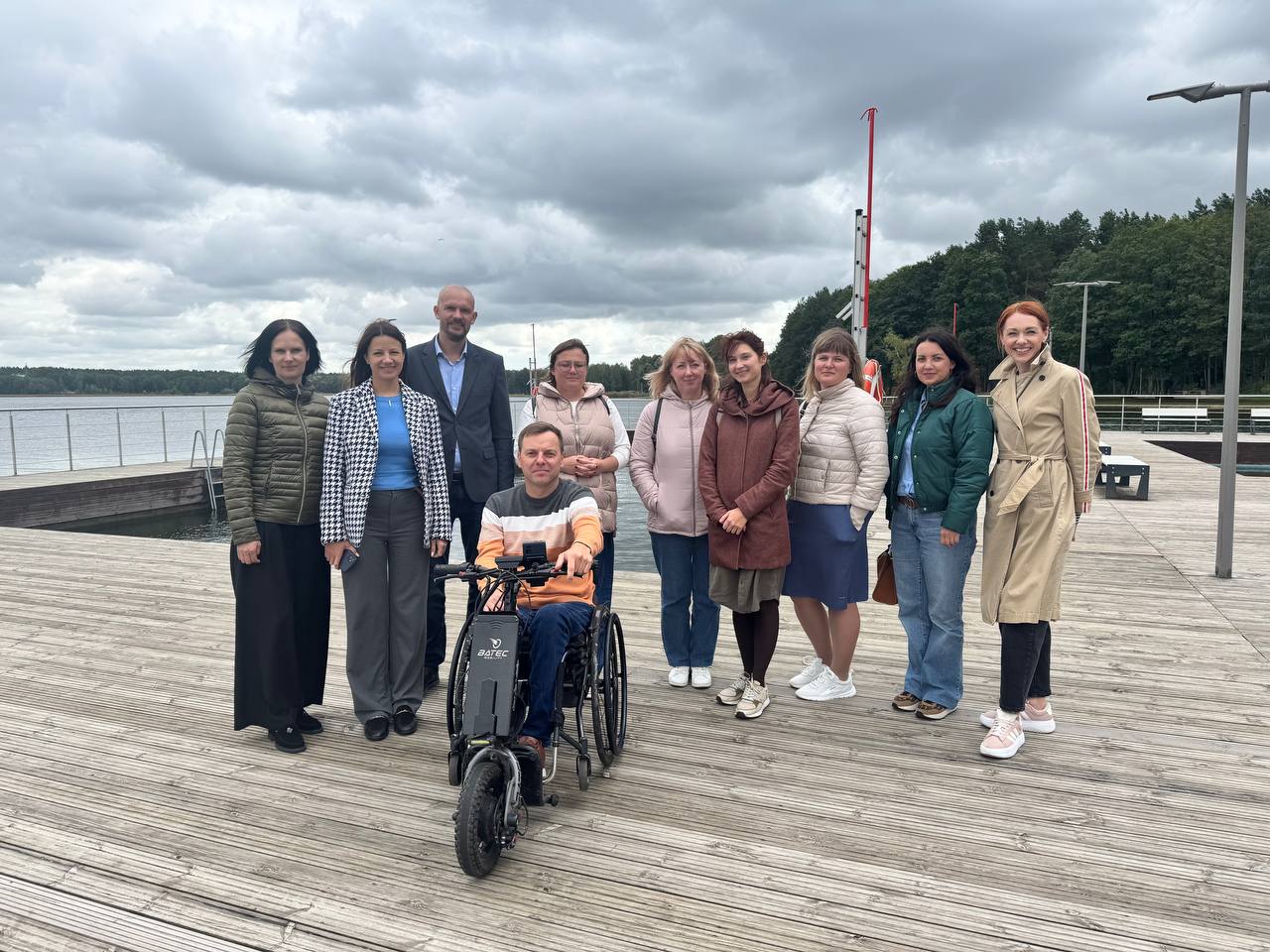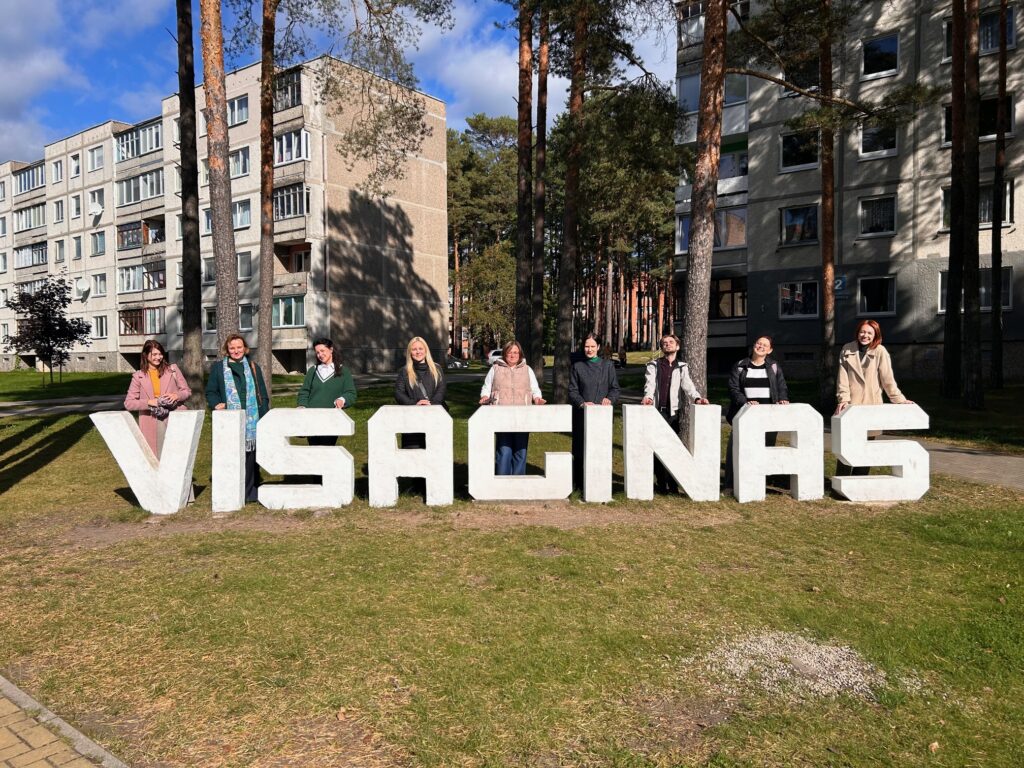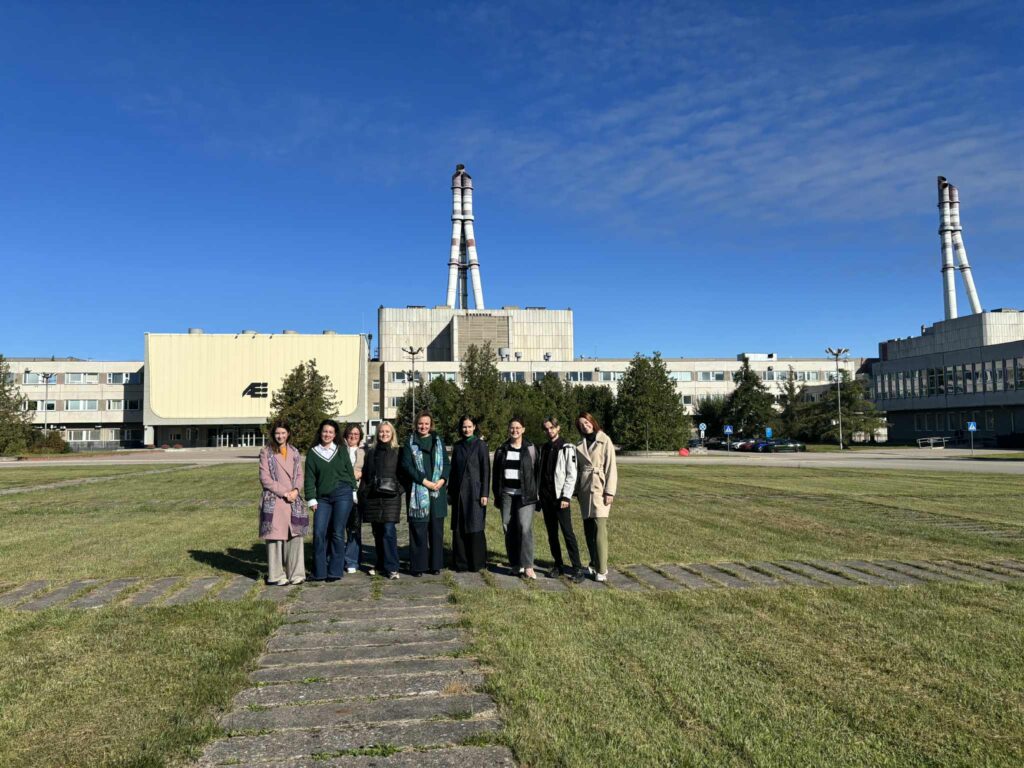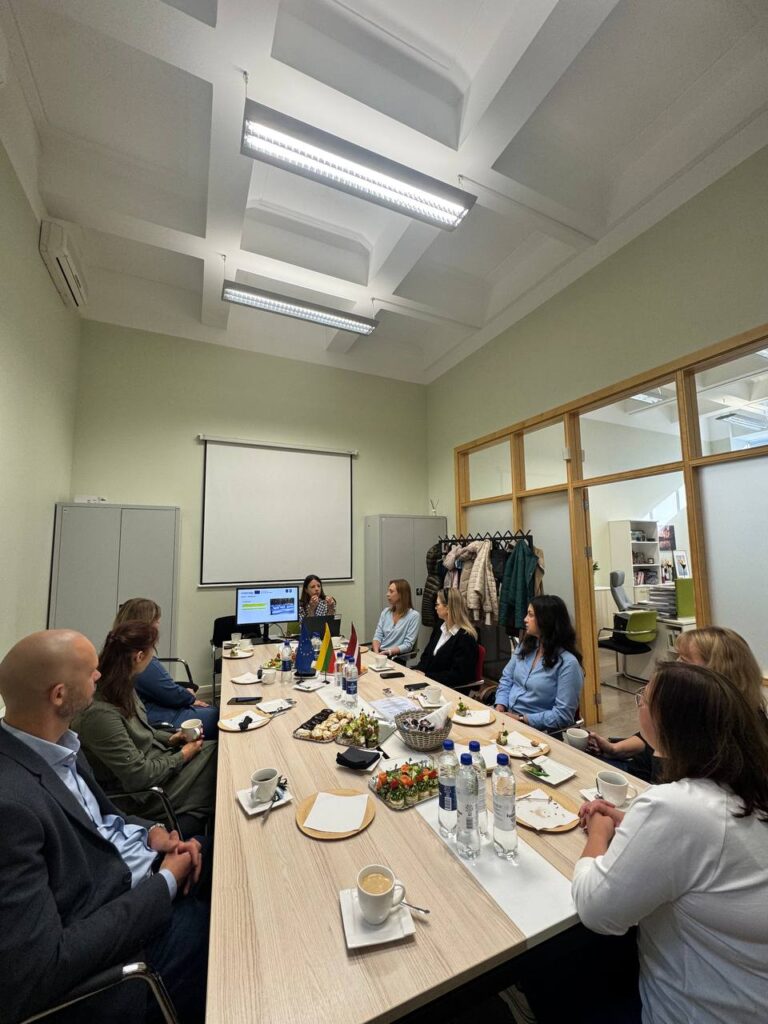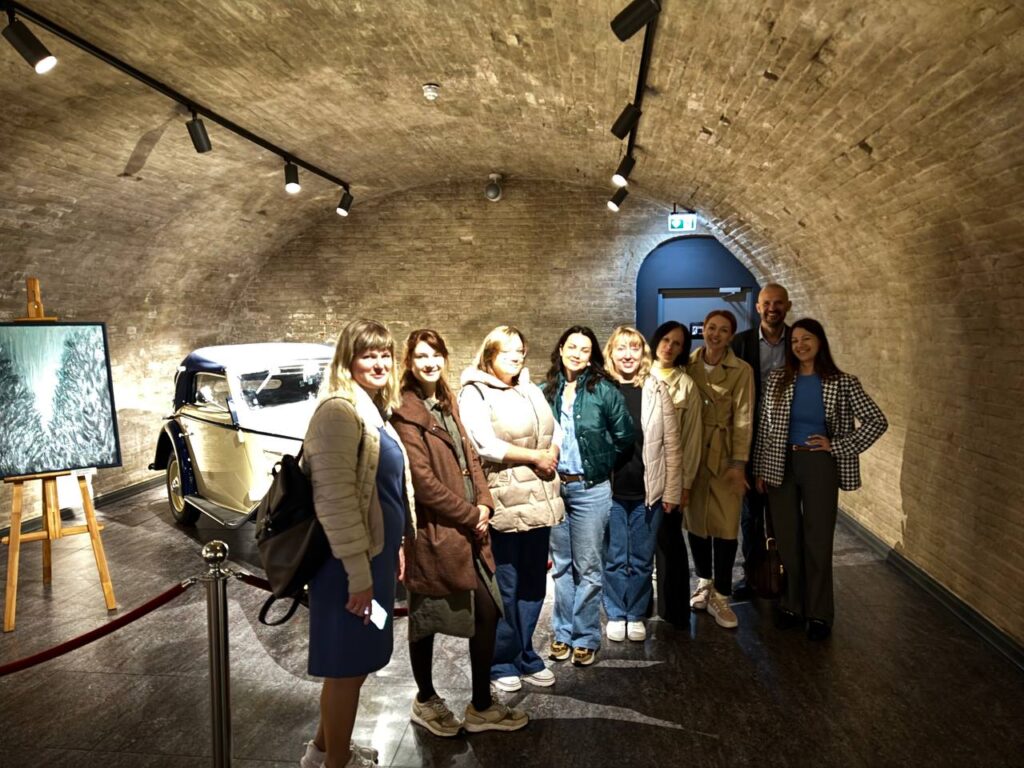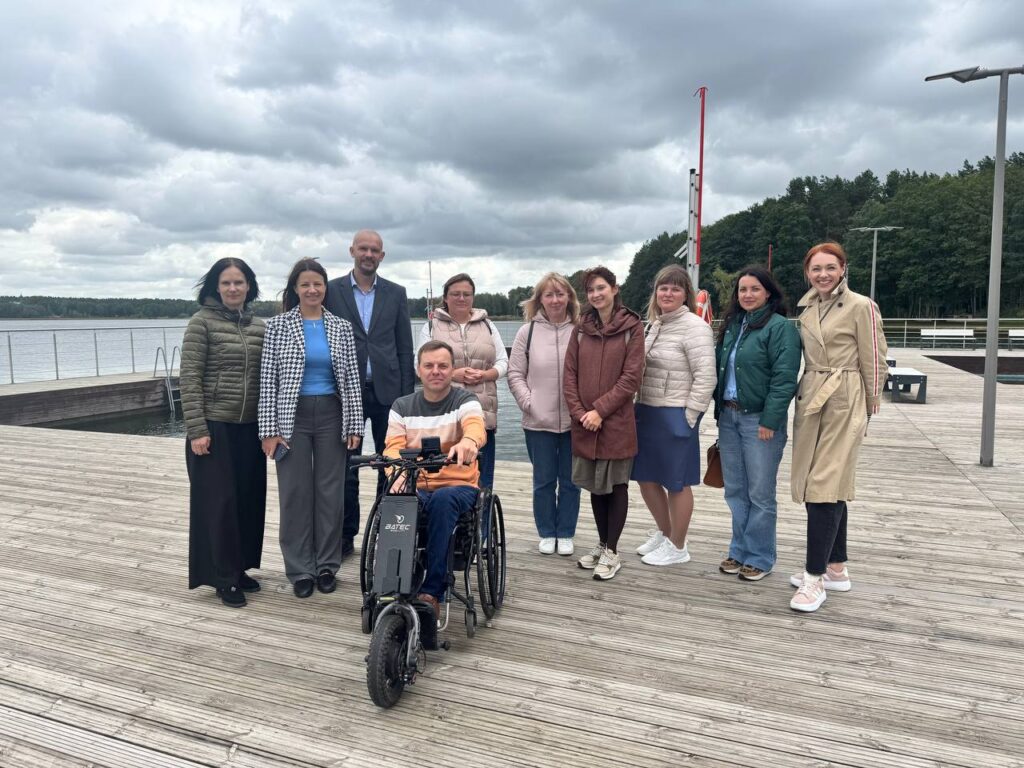In September 2025, representatives from Daugavpils and Visaginas took part in two study visits organised within the Interreg project “Sustainable Cross-Border Cooperation for Winter Tourism Development” (SnowPower). The visits aimed to exchange experience, explore good practices and strengthen cooperation between the two neighbouring cities in developing sustainable and inclusive tourism.
Visaginas Delegation Visits Daugavpils (19 September 2025)
The Visaginas delegation was introduced to examples of accessible tourism and inclusive infrastructure in Daugavpils. The programme included visits to key sites within the Daugavpils Fortress, such as the Engineer Arsenal and the Mark Rothko Art Centre, where the guests learned about current activities, development plans and potential areas for cross-border cooperation.
The delegation also explored one of the city’s most popular recreation areas — the beach at Lake Lielais Stropu — which offers both calm leisure and active outdoor opportunities.
To gain insight into the city’s cultural scene, visitors toured the Daugavpils Culture Palace, home to concerts, various events, a multimedia hall and a sports hall.
A meeting with representatives of the disability sports association “SOLIS PLUS” provided an opportunity to discuss the integration of people with disabilities into the city’s cultural and sports activities.
The visit highlighted Daugavpils’ efforts in creating accessible, inclusive and attractive environments for residents and tourists alike.
Daugavpils Delegation Visits Visaginas (29 September 2025)
A week later, Daugavpils tourism and development specialists visited Visaginas to learn about the city’s unique historical background and its approach to tourism development, with a particular focus on winter tourism.
The programme included visits to the Ignalina Nuclear Power Plant Information Centre, the Visaginas Museum and the Ignalina NPP control room simulator. These sites offered insight into the city’s distinctive nuclear heritage, which remains an important part of Visaginas’ identity and tourism offer. Despite its industrial origins, the city has maintained extensive green areas and natural surroundings that serve as valuable recreational spaces.
Discussions between professionals from both cities focused on winter tourism strategies and future cooperation opportunities. Both sides emphasised the importance of sharing experience to support sustainable development, diversify tourism offers and promote the region as a unified cross-border destination.


